Board games
My Top 10 Board Games
Race for the Galaxy
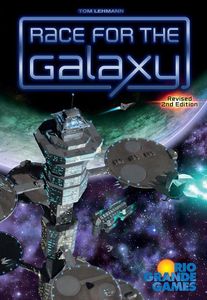
This is a perfect game. The game is extraordinarily elegant, it has a length that fits in just about anywhere without feeling too short (about 30 minutes), and the variety of cards is such that just about every game feels unique, while still being predictable enough to form longer-term strategies. RftG is an engine-building game where you lay down a tableau that gives you special abilities that make it easier to draw cards and add to your engine. Importantly, cards also act as currency (i.e. to build a development, you must discard 4 cards from your hand), meaning that even if you draw a card and it doesn’t fit in your plan it is still useful as a resource with which to pay for cards that you do care about. After around 25 plays, the game did start to feel a bit worn out, but adding an expansion brought back that air of unpredictability that really makes the game shine. The best thing, however, is that the game regularly sells for under $25, meaning that I have zero qualms with recommending this game to people.
Mage Knight Board Game
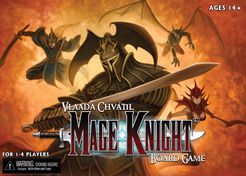
It’s big, it’s meaty, it’s complex, it takes 6 hours. Everything about this game is an investment you must make. Of all the games on this list, this is the hardest one to get to the table, making playing this game something of a special event. The reason I love this game is how tightly it requires you to manage per-turn optimization puzzles with per-round optimization puzzles with the per-game optimization puzzle. On a typical turn, my thought process might be, “Yes, I COULD go heal in that magical glade, but then I’m not really doing anything on my turn, and I might not be able to use up all my cards this round. On the other hand, this wound is limiting how many cards I can draw into my hand, and I’d stand a better chance of attacking the wizard’s tower with a full 5 cards instead of 4. Of course, I could…” The game just gives you so much to think about and trying to eke out that tiny bit of extra efficiency is extremely gratifying (to me at least. On forums some people say it feels like doing taxes). With regards to the complexity, this game is as simple as it can be. Every time I’ve thought about the impact of removing some terrain feature or some mechanic from the game, so many other aspects need to be updated, and the game inevitably becomes less interesting because of the change. Further, the game does everything it can to make it easy to remember the (admittedly large number of) rules through effective theming. Why is it easier to walk through this tile at night than it is during the day? Well that’s because it’s a desert and during the day it’s too hot. Why can’t I use a ranged attack on a fortified enemy? Well that’s because they’re hiding behind walls. And so on. The biggest hurdle to playing this game is learning it, but I found myself internalizing most of the rules after one or two games. Mage Knight is my favorite game, and I don’t see that changing anytime soon.
Underwater Cities

The first time I played Underwater Cities it felt like a forgotten classic. This is both good and bad, but the somewhat stripped-down, crunchy nature of the game is what I love about it. Every turn you play a card and place a worker. If the color of the card and the color of the action space match, great! You can do both! Simple, but it produces difficult decisions of when to play what card, all wrapped around an engine-building core that never has enough resources to do exactly what you want.
A Feast for Odin
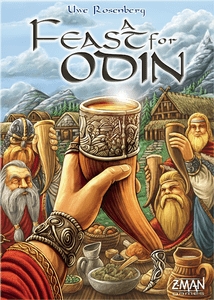
This is a big game. A beast. And I love it. Another game by Uwe Rosenberg, it has a lot in common with Agricola, from the action-selection mechanism, to the role cards, to the constant, looming need to feed your (Viking) family. “Oh!” you might say, “It’s about Vikings. So I raid and pillage and stuff, right?” Well, not quite. That’s a part of the game to be sure, but the main focus is on the more mundane aspects of Viking life, such as farming, emigrating, and whaling. All of this is in service of building and expanding your village. This results in a game where you’re constantly balancing sprints and marathons; do you use that boat for fishing now, or do you use it to emigrate away your population, reducing how much food you need to gather? Feast for Odin is definitely one of the more complex games I own, but there’s very little fat on the game, so I’ve never felt like a turn was useless. This is my second favorite game (right behind Mage Knight), and the only reason I don’t play it more is how long the game takes to set up.
Food Chain Magnate
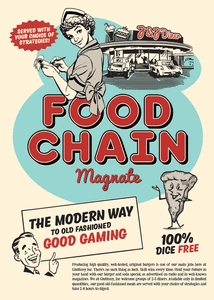
This game is incredibly interactive, mostly because very few of your actions actually impact your personal company. Instead, it’s much more a game of taking actions to modify the (shared) world. The result is a game that’s unlike anything else I can think of, and can be quite mean. Not necessarily mean because you’re actively taking things away from people, but rather because it provides the means by which to turn any actions that your opponent has taken into something that benefits you. Compounding this, growth in this game is exponential, leading to turns where literally half the money in the entire game can be earned in one turn, resulting in games that end with a huge bang.
Agricola
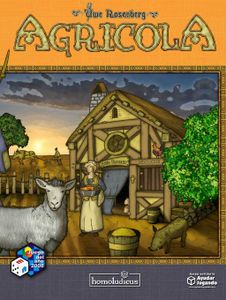
Almost certainly, Agricola is the game that cemented Uwe Rosenberg as my favorite designer. It is a game with so much hidden depth that feels drastically different based on player count: at two players, it’s mostly a matter of racing for a few objectives; at five it’s an exercise in mitigation and trying to eke out a strategy as everyone else takes your desired action spaces. The first time I played the game, it was all about the board, trying to use the spaces there to build my farm and not starve. As I continued playing Agricola, not starving became less of a concern, and optimization for points became the name of the game. The real turning point with this game is when you start to REALLY use the occupation and minor improvement cards. Essentially, when you’re good enough at the game, it becomes a matter of drafting the occupation cards that will define a strategy for the rest of the game. This might seem a bit dull (after all, what’s the point of playing the game if you’re basically just piloting your hand of cards?), but it has a wonderful effect on the game in that it means that every game is different, and you’re given a clear goal that you’re working towards. You still must react to your opponent, though, since they will be taking valuable resources from the board, forcing you to reevaluate and update your strategy throughout the game. The game is so tightly designed with so many possible strategies I do not see it ever getting old.
Gaia Project
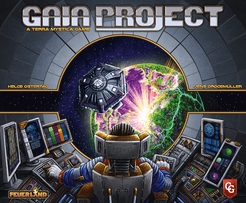
The first time I played Gaia Project my immediate reaction was “Wow. That was a very well put-together game.” Everything felt clean and meaningful, though the rules overhead may have been a bit high. I don’t think it really captures the feel of expanding through space, though that’s not necessarily something I hold against the gamed. The game plays relatively quickly too (at least at 2 players).
Freedom: The Underground Railroad
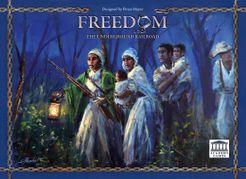
Such a heavy theme. I can imagine people getting turned off by it but I think it makes the game shine if only because it turns what would be relatively minor setbacks without the theme into something that feels quite a bit more impactful (e.g. having a slave be captured by a slave catcher). The game is perhaps a bit too puzzley, but it also makes the game entirely distinct from any other cooperative game I’ve played.
Android: Netrunner
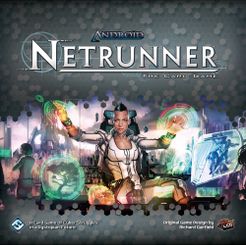
I admire this game for how well it uses asymmetry to reinforce and enhance its theming. In this game, one player is a hacker and the other is a corporation in a cyberpunk world. Throughout the game, the corporation essentially serves as an adversarial dungeon-master for the runner, and it’s this relationship that makes the game really unique, and also means that you always care about what the other player is doing. Netrunner is highly interactive and requires a mix of strategy, tactics, and bluffing. Fantastic game. Shame it got discontinued.
Great Western Trail
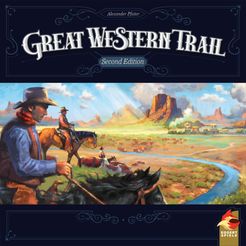
Yeehaw! You are a rootin’ tootin’… Manager of a cow delivery service herding cows across the old west as it stops being quite so old and gradually becomes more developed. Very high recommendation from me.
Last updated
Was this helpful?